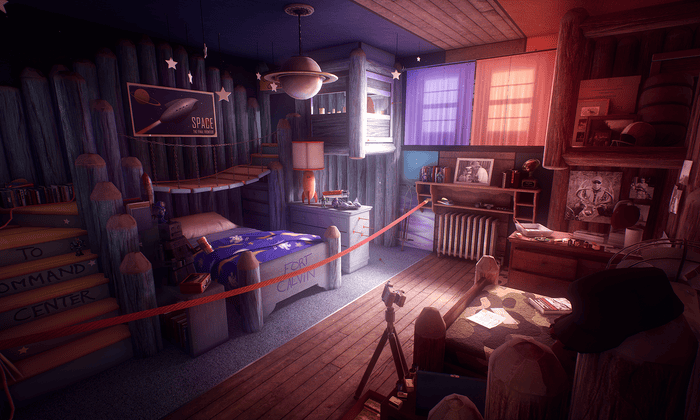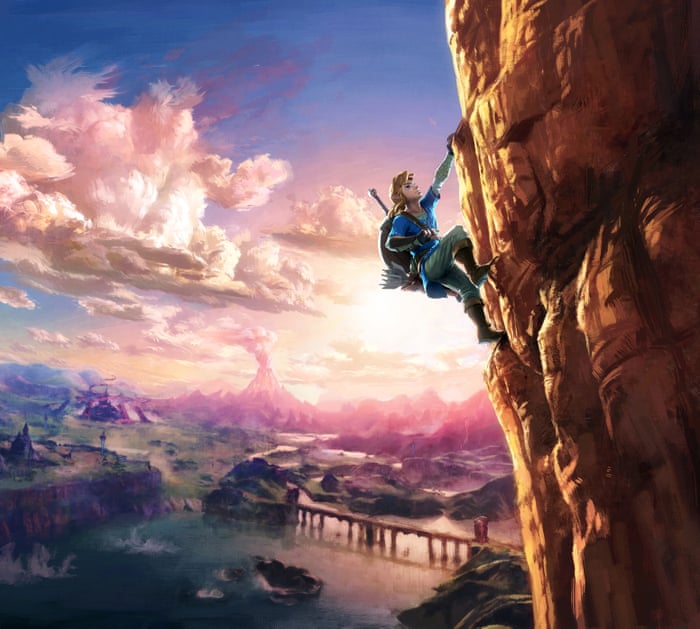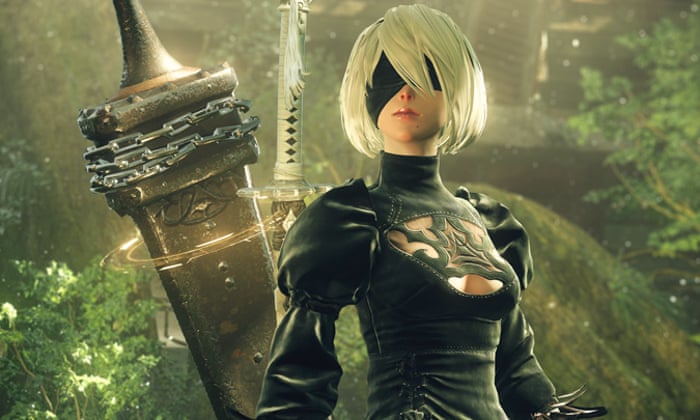
What Remains of Edith Finch: ‘stories as affecting as any in the higher arts’. Photograph: Annapurna Interactive
What Remains of Edith Finch: ‘stories as affecting as any in the higher arts’. Photograph: Annapurna Interactive

The Legend of Zelda: Breath of the Wild: ‘a sweet wind of change’. Photograph: Nintendo
David O’Reilly’s Everything, released earlier this year, encourages empathy with other living creatures in the simplest way imaginable: offering you the chance to embody a moose, a rabbit, a cockroach, a raspberry, a pebble, a tuba, a star, through the spectral act of possession. You emerge, hours later, feeling a little closer, not only to fellow man, but also to fellow matter.
At the other end of the scale, Playerunknown’s Battlegrounds (abbreviated to the preposterous, unpronounceable PUBG) shows the cruelty and duplicitousness of our species, by dropping 100 people on to an abandoned island and letting them fight it out using whatever weapons they find there, until only one person remains. Yes indeed: video games reflect humanity’s appetite for competition as much as cooperation.
What a year, meanwhile, for Nintendo, a company that belligerently plots the opposite course to its competitors, to outcomes that can be as damaging as they are profitable. This year the gamble paid off, bookended by two of the finest works of escapism yet devised: The Legend of Zelda: Breath of the Wild and Super Mario Odyssey. Neither game says much about the current world (although, extraordinarily, the latter briefly hops to New York City) but each deliciously provides a refuge from which even the most beleaguered soul will surely emerge newly ready to fight.

Five best games
What Remains of Edith Finch
A young woman returns to the derelict island home of her youth where she inhabits vivid flashbacks that describe the various eccentric fates of her characterful family. This elegiac, memorable tale of family secrets could only be possible in the video-game medium, and shows how careful design can produce stories as affecting as any in the higher arts.
The Legend of Zelda: Breath of the Wild
After close to a decade of misfortunes – the toppling share price, the failure of the Wii U and, in the death of Satoru IwataBreath of the Wild arrived as a sweet wind of change. It refines many of the prevailing fashions in contemporary game design with Nintendo’s untouchable wit and flair and, along with the Switch hardware for which it was designed, is the crowning achievement in the company’s spectacular year.
Playerunknown’s Battlegrounds
With today’s concerns over home ownership and climate change, it seems fitting that the 2017’s most popular video game should feature people scrambling for resources and territory on an island threatened by a deadly approaching tide. The record-breaking independent game, which is based on the premise of the film Battle Royale, has now sold more than 20m copies, yet its spell on players is only strengthening.
Everything
A game in which you can inhabit, one by one, every animal, vegetable and mineral in the known universe. You start out as a moose, switching to a monkey or an apple or a frog, and eventually a planet or a sun, exploring the world at a speed and perspective appropriate to your size. As you dreamily play, you listen to snippets of a lecture delivered by the British philosopher Alan Watts on the nature of existence. The weirdness is intoxicating and, at times, moving.
NieR: Automata
This hyperactive action title from the idiosyncratic Yoko Taro – the closest thing Japan has to a Tim Burton – examines a time when humanity has been driven from Earth by the robots we have designed. A timely game for a current anxiety, then, and Taro’s fearless, fourth-wall breaking design plays with the theme in fascinating and varied ways.
Turkey
Life of the Black Tiger
Such is the variety of game-making tools and distribution methods that even the most amateurish video games can appear on a global stage. So it is with Life of the Black Tiger, a game of such comprehensive deficiency (the juddering animations, the demented camera, the oppressive pointlessness of it all) that its shortcomings seem almost charming.
[“Source-theguardian”]







